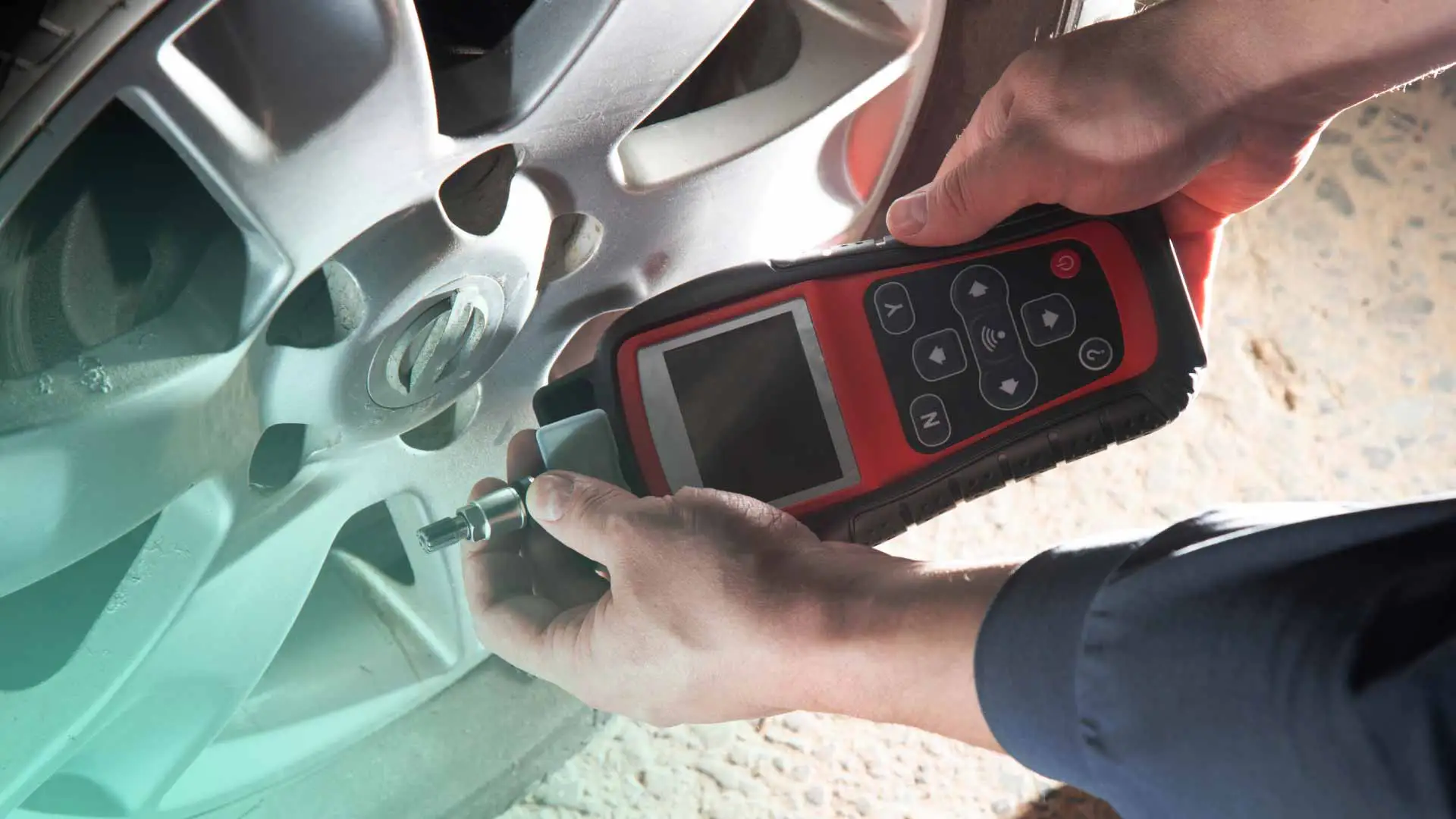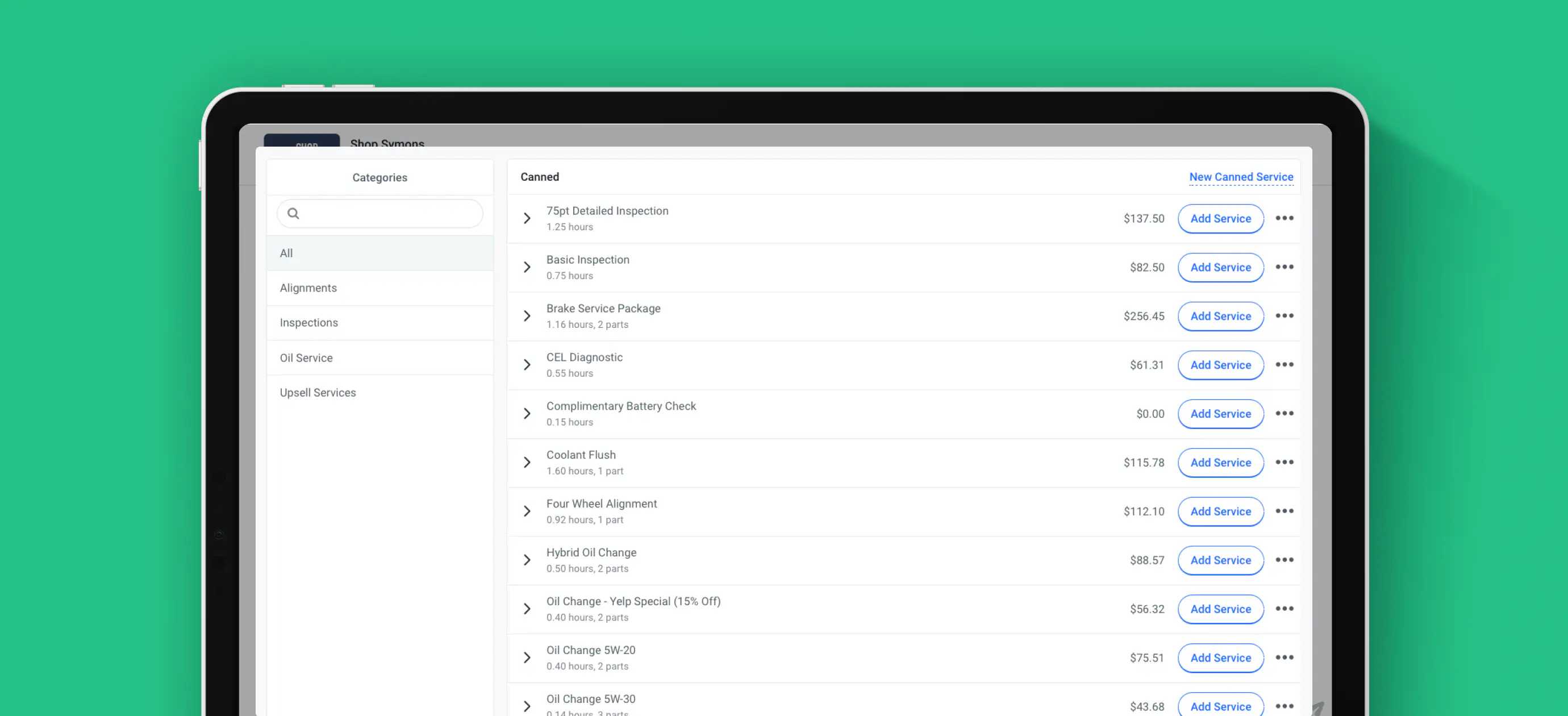These days, it’s pretty rare for an auto repair technician to work on a car that doesn’t have a tire pressure monitoring system (TPMS). The technology has been mandatory in the U.S. since 2007, so having reliable automotive diagnostic tools to service it is a must for any shop.
But the right TPMS tool doesn’t just check sensors–it helps your shop run more efficiently by allowing techs to diagnose and fix issues faster and more accurately. It also improves vehicle safety by flagging issues that might be missed during a visual inspection. Plus, a versatile tool lets you work on more types of vehicles, potentially growing your customer base.
For serious auto shops, investing in a high-quality TPMS tool is an easy call. The real challenge is finding the right one. To make your decision a little easier, we’ve outlined key features, considerations, and recommendations so you can pick a tool that fits your shop’s capabilities and helps grow the bottom line.
Understanding TPMS Systems
You probably already know the difference between direct and indirect TPMS: Direct systems use sensors inside the tire to monitor pressure, while indirect systems rely on the ABS to pick up pressure changes. Instead, let’s focus on the unique challenges these systems present when it comes to diagnostics and troubleshooting. Sensor failures, computer errors, depleted batteries, interference issues, and incorrect programming can all set off TPMS warnings.
To further complicate things (you’re welcome!), different vehicles have different relearn procedures: Some use OBD-II integration, some require a stationary relearn, and others need a drive-around auto-learn. That’s why a versatile, do-it-all TPMS tool is indispensable. Trying to juggle multiple devices based on what rolls into your shop–or turning away business because your tool doesn’t support certain vehicles–isn’t exactly a recipe for success.
Key Features for a TPMS Tool
There are plenty of TPMS tools out there, but keying in on the most useful features will help you find the right one for your shop.
1. Frequency Coverage: A good TPMS tool supports both 315MHz and 433MHz frequencies, which most domestic and European vehicles run on. Dual-frequency tools save you from having to deal with multiple devices so you can get right down to business.
2. OBD-II Connectivity: Direct access to TPMS data through the vehicle’s OBD-II port can make a world of difference. Look for tools with the flexibility to support all three types of relearns–stationary, auto-learn, and OBD-II. Some even come with bidirectional OBD-II capabilities and can reset TPMS warnings without having to go through a whole drive cycle.
3. Sensor Programming and Cloning: The best TPMS tools can program aftermarket sensors and work smoothly across multiple brands. Another helpful feature is cloning, where you can copy an existing sensor ID so the vehicle’s ECU skips the relearn process. While this saves time, it’s not always the way to go–if the original sensor had issues, you may be better off creating a new ID, so look for tools with both options. A good TPMS device should also check sensor battery life and transmission strength, which can help you catch failing sensors early on.
4. User Interface and Ease of Use: Your TPMS tool should be simple enough to navigate, with a decent-sized screen, clear menu setup, and easy-to-read display. Also, look for one that comes with regular software updates. TPMS technology is fluid, and updates will make sure your device stays compatible with new vehicles and sensors.
5. Data Logging and Reporting: A tool with solid data logging and service-history tracking can help you identify recurring issues, make troubleshooting simpler, and provide in-depth reports. It’s also nice to have a device with data exporting and printing capabilities, especially when customers or insurance companies need documentation.
6. Durability and Build Quality: TPMS tools will take a licking, whether they’re dropped, bumped, spilled on, or accidentally kicked once in a while. Look for a device that’s built tough–preferably with a rubber or durable plastic shell–and comes with a strong warranty. Spending a little more on the front end is worth it if it means fewer repairs or replacements down the road.
TPMS Tool Recommendations
The best TPMS tool for your shop depends on the type of work you do and how much tire business you handle. Smaller shops or mobile mechanics with basic needs can get by with budget-friendly options that include core features like sensor activation, relearn functions, and OBD-II compatibility.
Mid-range tools, which hit the sweet spot for most shops, offer a solid balance of price and performance. They’re typically faster, work with more vehicles, and provide more advanced diagnostics.
For high-volume shops that see a lot of TPMS work, top-tier tools with features like built-in technical databases, wireless connectivity, and sophisticated diagnostic algorithms are worth the investment. Some even integrate with shop management systems to help track repairs and manage inventory.
Mobile mechanics will want a tool that’s compact, lightweight, and has a long battery life. And don’t forget wireless connectivity, which lets you run diagnostics, perform relearns, and sync data with mobile devices or shop management software remotely.
Tools That Deliver for You
Choosing the right TPMS tool is a smart investment that can improve your shop’s productivity, accuracy, and customer satisfaction. A feature-rich, versatile, and easy-to-use device is an essential addition to your toolbox, helping you stay ahead of the curve and deliver precise, reliable service.
That said, even the best equipment won’t perform if it’s not used correctly. Always double-check sensor IDs before programming or cloning to avoid typos. Follow the proper relearn sequences and procedures, as they can vary by manufacturer. Keep your tool’s software updated so it’s ready for new vehicle models. And if you really want to excel, consider investing in TPMS training or certification for the latest techniques and intel.
Want to take your shop’s efficiency even further? Request a demo of Shopmonkey’s comprehensive tire shop software and see how next-level shop management can complement your TPMS toolset and elevate your entire operation.




